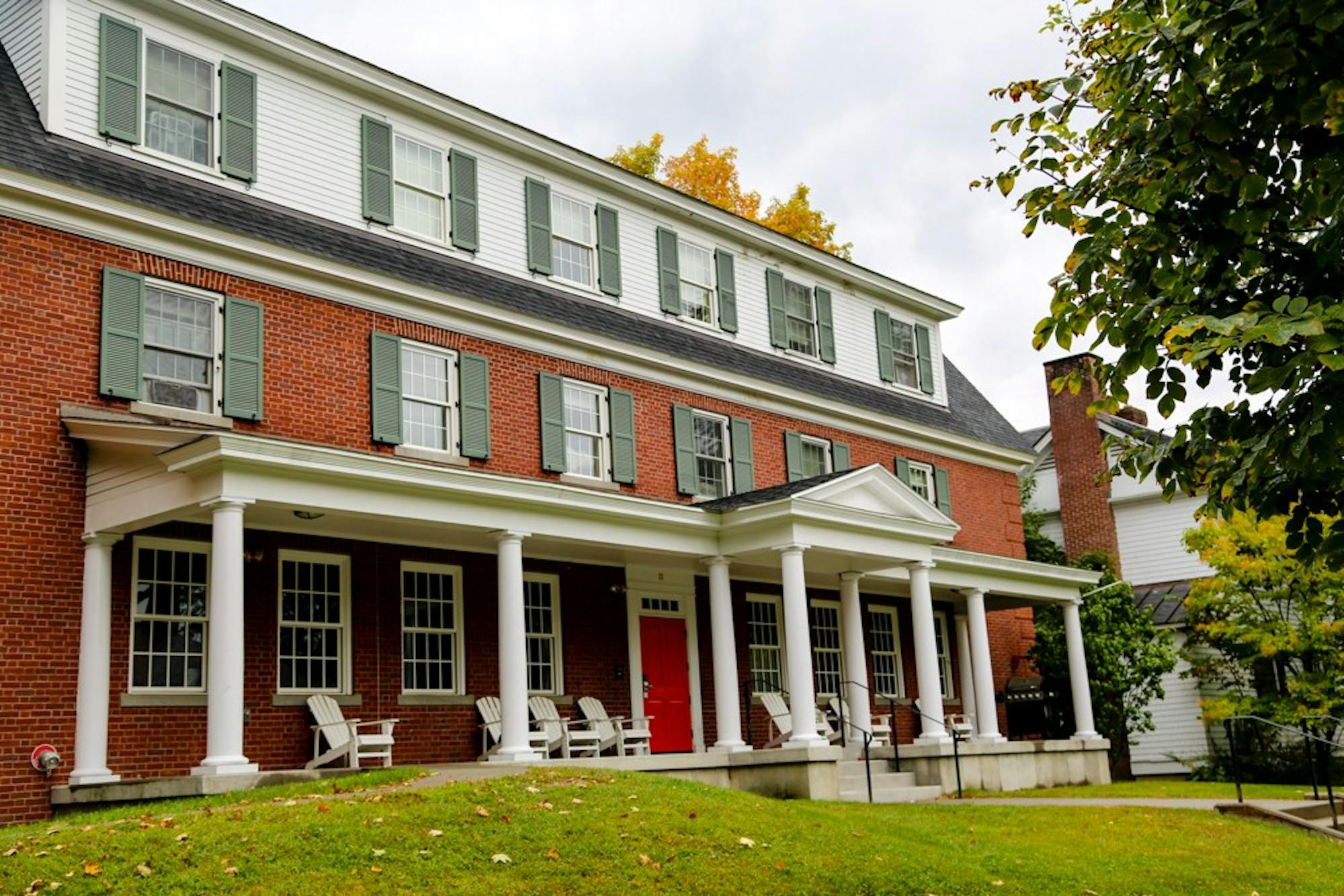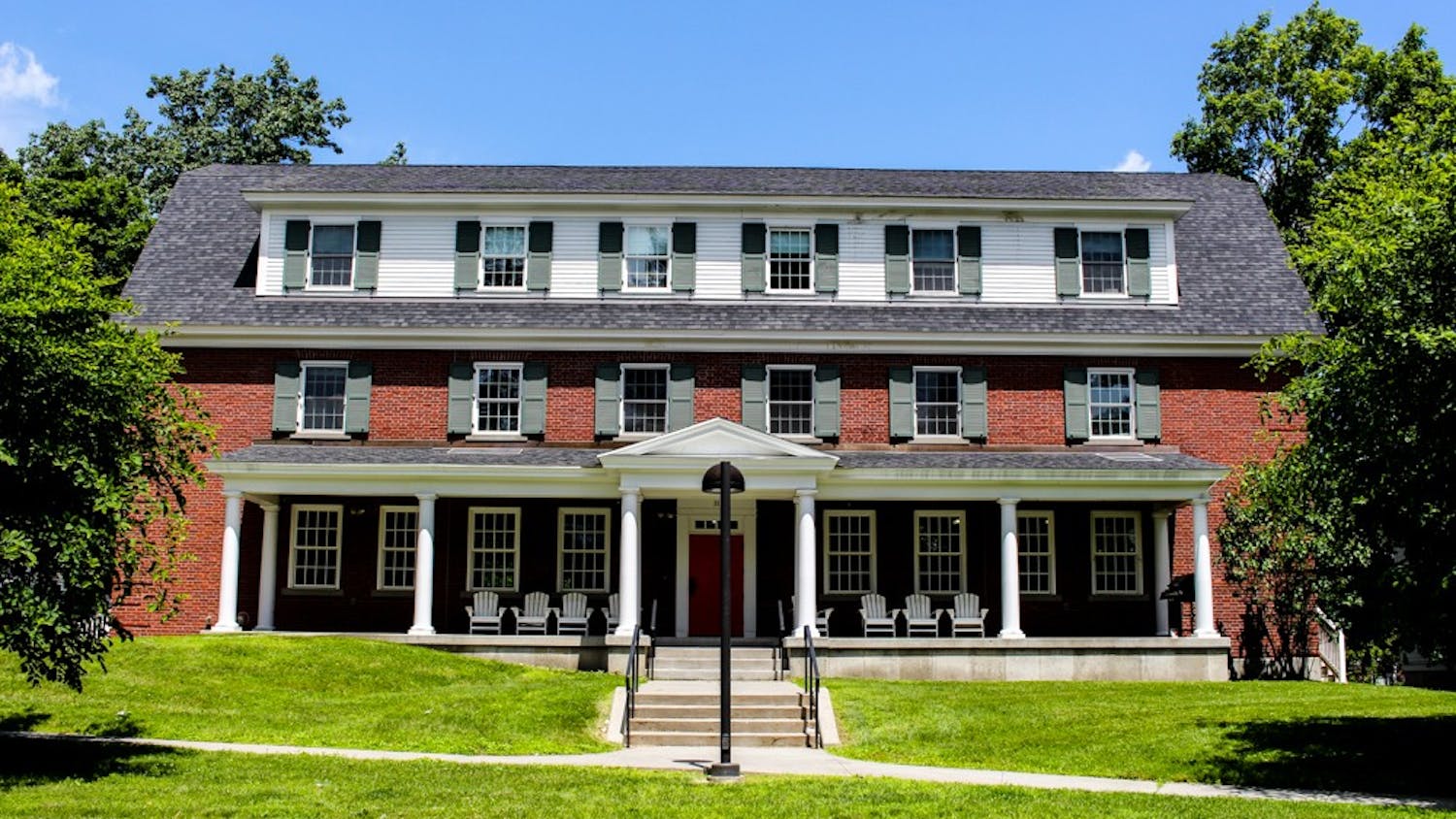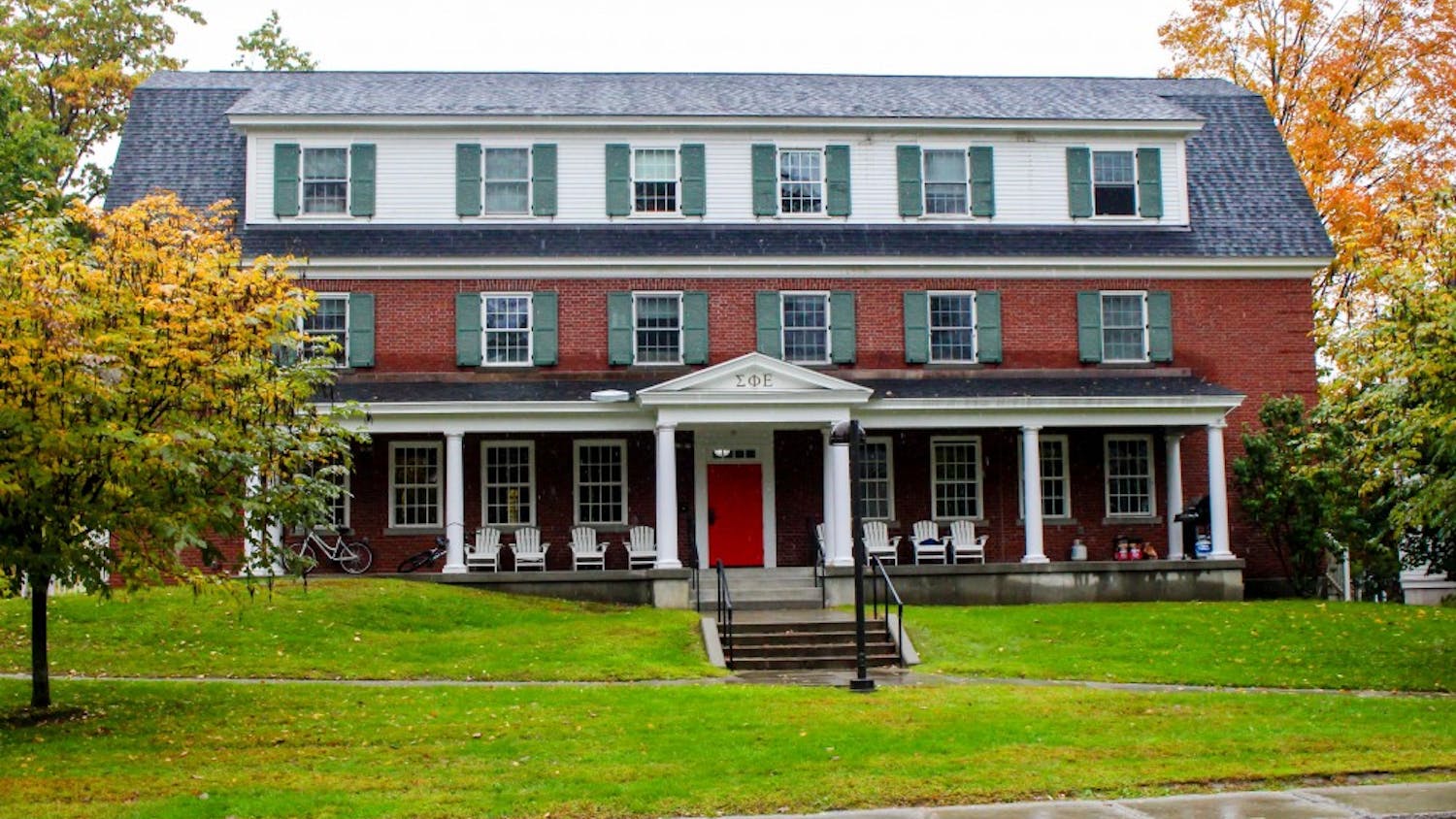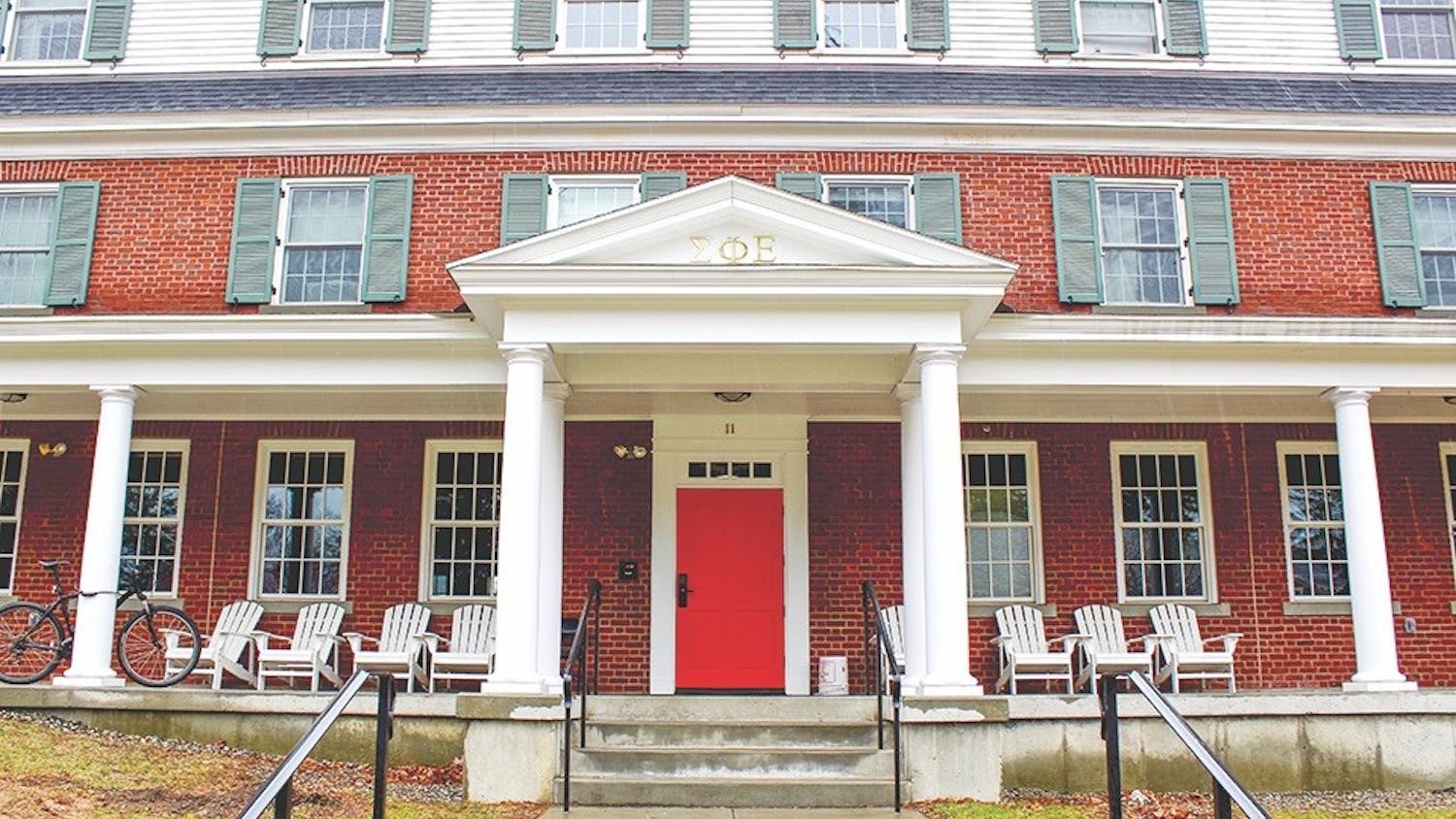Due to complications from the ongoing pandemic, Sigma Phi Epsilon fraternity’s return to campus, originally slated for this fall, has been pushed back a year to the fall of 2021.
According to Isaiah Berg ’11, a member of the Sigma Phi Epsilon New Hampshire Alpha Alumni and Volunteer Corporation Board, the fraternity decided to push back the reopening date in an effort to be “realistic” about what will be possible as the COVID-19 pandemic continues.
“We're looking very closely at what the fall term will look like,” Berg said. “Obviously, we're hoping for both students and for the College, for everyone, that this pandemic can be resolved. But regardless, we anticipate the relationship with the College continuing as we've agreed.”
Office of Greek Life director Brian Joyce confirmed that Sig Ep has communicated these plans to the College. Joyce noted that the new plan is viable under the original guidelines of the house’s suspension, which allowed the fraternity to return to campus during the fall of 2020 and provided the opportunity to be off of probation by the winter of 2021.
The former Sig Ep house, which sits at 11 Webster Avenue, was used during the 2019-2020 academic year to house the Thought Project Living Learning Community. After campus was vacated due to the pandemic, the house was cleared out to be used for potential extra housing needs.
“Obviously, with the pandemic [the house] has been empty,” Berg said. “That’s kind of what the facility has been used for in the recent past and will continue to be in this reserve capacity as long as this pandemic is ongoing.”
Associate director of residential operations Bernard Haskell confirmed that the Sig Ep house may be used to house medical workers and first responders until undergraduate students can return to campus.
“The majority of our recruiting will take place beginning fall 2021 on campus,” Berg said. “That will really be our opportunity to have not just people like myself [and] other members of the board [and] other volunteers, but also [have] a full-time staff member provided by the national organization who is able to be an on-campus presence and help, again, foster relationships, coach people and really assist in recruiting that class of Dartmouth men who want to do something different on campus.”
In the past, there has been disagreement within Sig Ep about what “class of Dartmouth men” the fraternity should include. In 2018, the chapter underwent a membership review that purged the fraternity of nearly 80 percent of its brothers. The fraternity remains involved in a lawsuit stemming from disagreement over the review.
As the fraternity plans its return to campus, the organization remains involved in a lawsuit filed by Sig Ep alumni against the AVC Board in July 2018, shortly before the revocation of the house’s charter by the fraternity’s national board of directors. Both sides are preparing for the case to move to the New Hampshire Superior Court in October. The defendants — the AVC and certain members of its Board of Trustees — submitted a motion to dismiss from the Superior Court, but Justice Peter Bornstein denied the motion last June.

After AVC Board president J.D. Optekar ’91 and a group of other Board members authorized the membership review, AVC member Alex Becker ’10 and other Sig Ep alumni filed their original complaint, alleging that the review was a violation of their rights as dues-paying members of the Board.
Eric Schwager ’10, one of the plaintiffs, said that he and other Sig Ep alumni had hoped to be able to “protect” the undergraduate members at the time from being severely punished for infractions that he recalls “[weren’t] anything major.” However, he said that based on correspondence with the AVC Board, the membership review was “almost voluntary. It was like self-flagellation.”
According to a June 2018 email sent by Nicholas Weir ’09 to the alumni of Sig Ep, more than 200 members of the AVC signed a letter to the Board expressing “displeasure” about the membership review. After the letter was ignored, the alumni called for a special session of the AVC “in order to exercise our rights as brothers of the chapter and as voting members of the AVC to direct the Board to change its course.” However, the email said that the AVC Board rejected the meeting “in violation of its own bylaws,” and then changed the bylaws with no prior notice to eliminate voting rights for members and make the AVC Board “self-perpetuating.” Becker filed the lawsuit weeks later.
“None of this [legal action] was necessary if they just adhered to the governance bylaws,” Schwager said, adding that the alumni attempted to enter into mediation and discuss other options with the AVC Board before Becker filed the complaint.
“It's sad because we were unable to stop this kind of ripping through the student body of Sig Ep that we started this [legal action] to hopefully try and protect,” he said.
In the months before its closure, Sig Ep faced a series of alcohol violations while the house was already on probation.
“The chapter at Dartmouth had the equivalent of a whole lot of parking tickets,” Dan Richman ’95, who worked with the Sig Ep chapter at the University of Florida to reopen after its charter was revoked, said.
Richman volunteered to help with the reopening of the Dartmouth chapter because of his experience with the University of Florida, but he claimed that the AVC Board refuses to work with anyone “who even has a mild opinion that the way this was handled wasn’t great.”
“It’s very much silencing dissent and proceeding,” he said.
Berg, who joined the AVC Board after the revocation of Sig Ep’s charter, said that many Sig Ep alumni have volunteered to help with the Dartmouth chapter’s reopening and will continue to do so in the year leading up to the new fall 2021 reopening date.
“We have a number of alumni people from across years, not on the AVC, who have expressed desires to help [and] offer messages to support people who are interested,” he said.
AVC Board president J.D. Optekar ’91, speaking on behalf of the AVC Board, declined to comment.
Lucas Gatterman contributed reporting.
Correction appended (May 7, 2020): A previous version of this article noted that Nicholas Weir is a plaintiff in the lawsuit. The article has been updated to reflect that Weir is not a plaintiff.

Lauren ('23) is news executive editor for The Dartmouth. She is from Bethesda, Maryland, and plans to major in government and minor in public policy.




